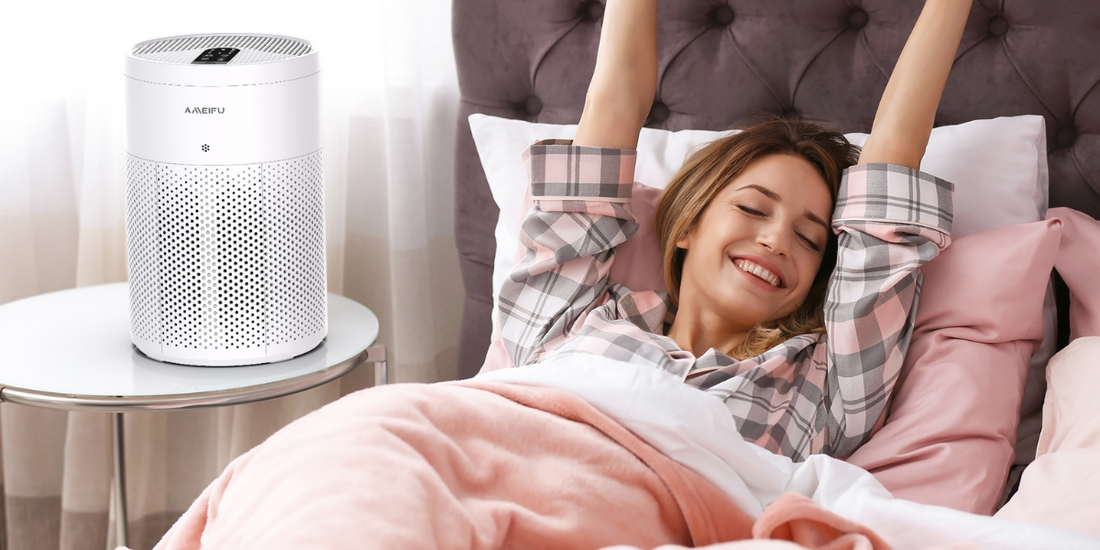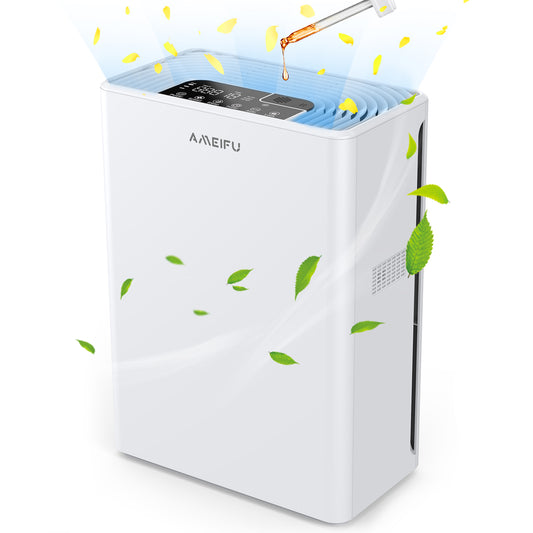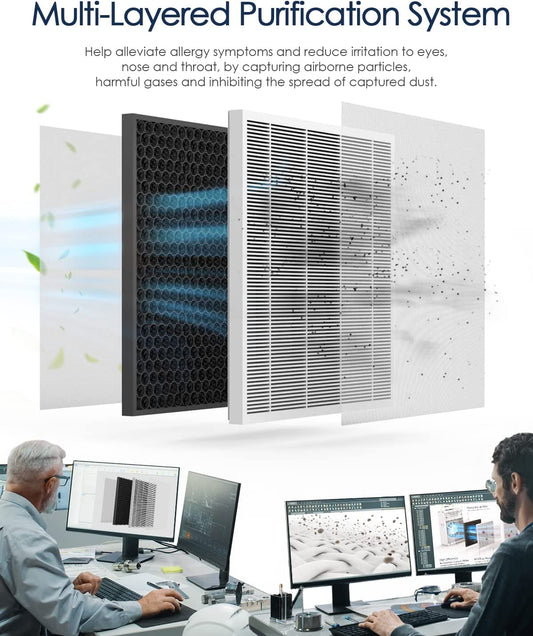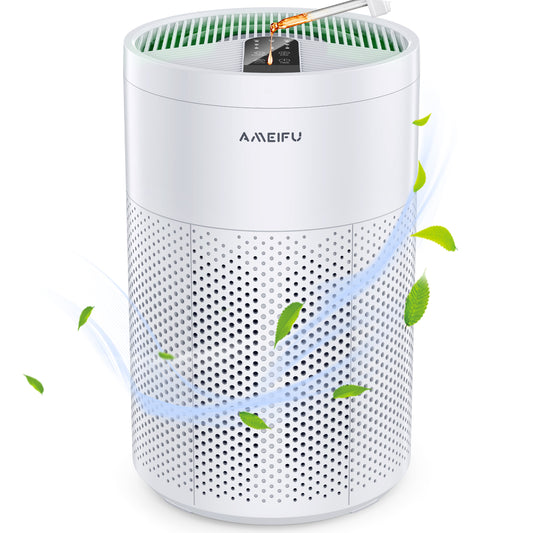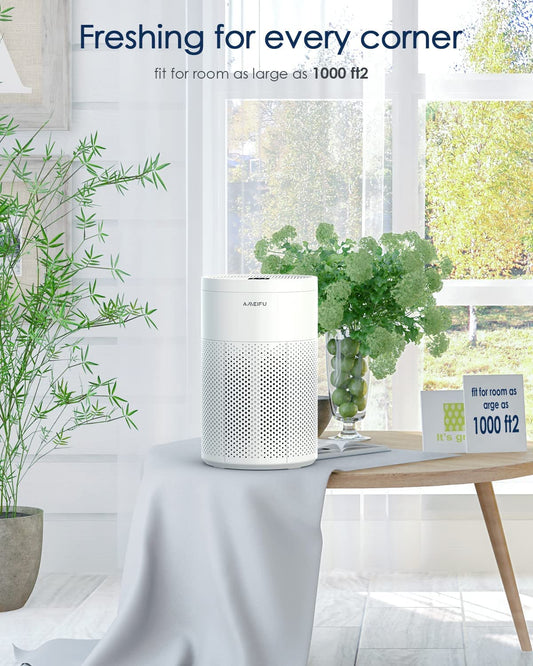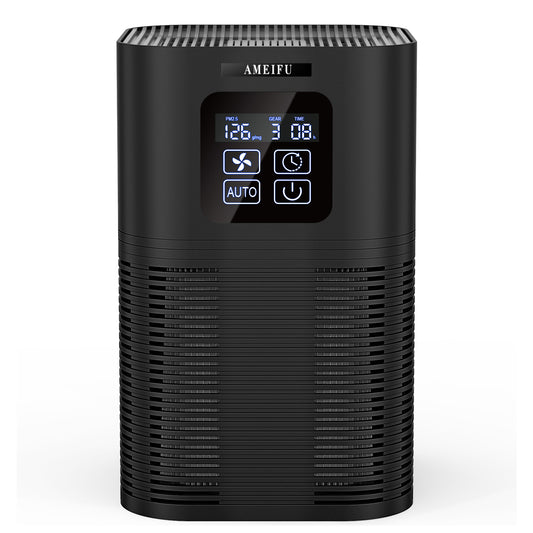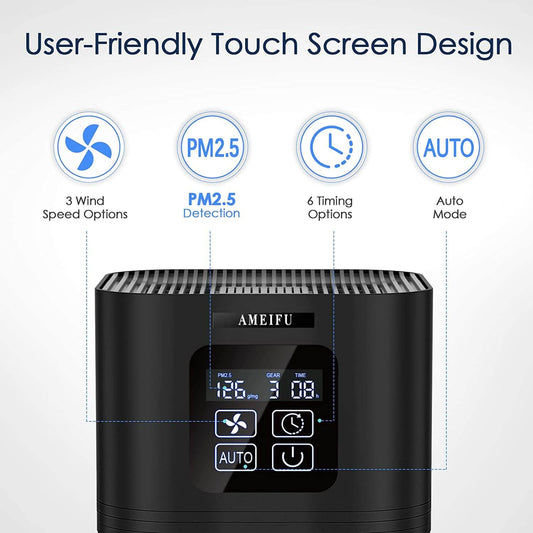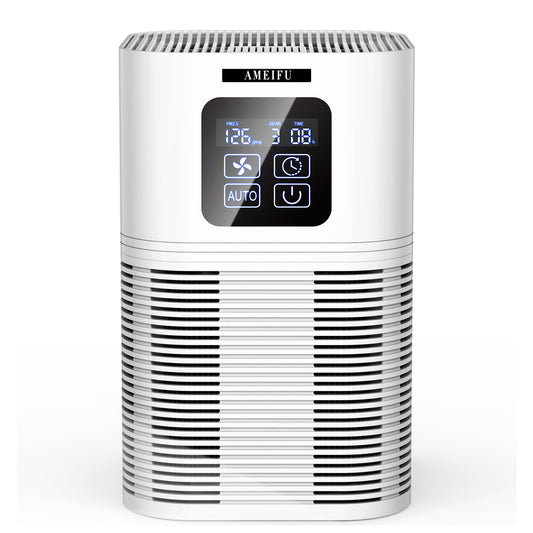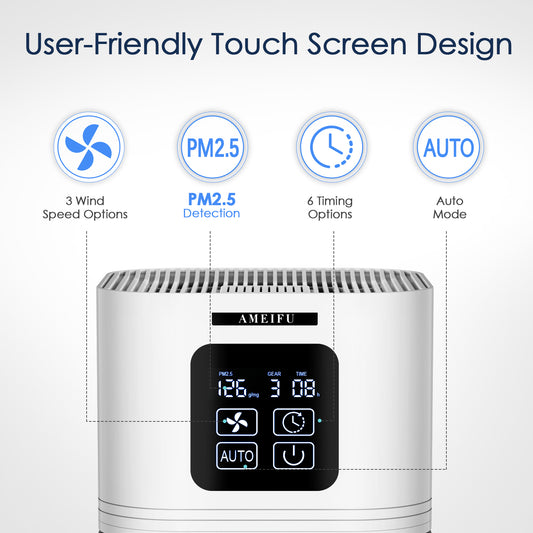Air purifiers have gained significant popularity in recent years as people prioritize clean and healthy indoor air. These devices are designed to remove pollutants and contaminants from the air, promoting a fresher and more breathable environment. However, a common concern that arises when considering an air purifier purchase is the noise level they produce. In this article, we will delve into the topic of air purifier noise, exploring its causes, factors influencing noise levels, and how to choose a quiet air purifier for your specific needs.
What Causes Noise in Air Purifiers?
Before addressing whether air purifiers are noisy, it's important to understand the underlying causes of the noise they produce. Several factors contribute to the noise emitted by these devices:
- Fan Speed: Air purifiers typically utilize a fan to circulate air through the filtration system. The higher the fan speed, the more noise it generates. Manufacturers usually provide multiple fan speed options, allowing users to adjust the noise level according to their preferences.
- Design and Build Quality: The design and build quality of an air purifier play a crucial role in determining its noise output. Devices constructed with high-quality materials and superior engineering tend to produce less noise compared to cheaper, less refined models.
- Filtration Technology: Different air purifiers employ various filtration technologies, such as HEPA filters, activated carbon filters, or ionizers. Each technology has its noise characteristics. For instance, ionizers typically produce a low humming sound, while HEPA filters with a larger surface area may require a more powerful fan, resulting in increased noise levels.
Factors Influencing Noise Levels
While air purifier noise can be subjective, several factors influence the overall noise levels of these devices. Understanding these factors can help you make an informed decision when selecting a suitable air purifier:
- Fan Speed Settings: As mentioned earlier, air purifiers usually offer different fan speed settings. Running the device on higher fan speeds may lead to increased noise output, while lower settings can significantly reduce the noise level. Some advanced models come with specialized sleep modes or noise-reduction features for quieter operation during nighttime.
- Room Size: The size of the room where you plan to use the air purifier also affects the perceived noise. A powerful air purifier may be required to clean the air in larger rooms, but this may result in higher noise levels. Conversely, a smaller room may require a lower-powered air purifier, which typically produces less noise.
- Distance from the User: The distance between the user and the air purifier influences the perceived noise level. Placing the device farther away from frequently occupied areas can minimize the impact of noise on daily activities.
- Manufacturer Specifications: It is important to consult the manufacturer's specifications and user reviews to gain insight into the noise levels of a particular air purifier model. Look for devices with lower noise ratings or noise reduction technologies if noise is a major concern.
Choosing a Quiet Air Purifier
If noise is a critical factor in your air purifier selection process, consider the following tips to find a model that suits your needs:
- Noise Ratings: Pay attention to noise ratings provided by the manufacturer. These ratings are usually measured in decibels (dB). Look for air purifiers with noise levels below 50 dB for a quieter operation.
- Specialized Features: Some air purifiers come with specialized features like "sleep mode" or "nighttime operation" designed to reduce noise output during quiet hours. These features automatically adjust fan speed and noise levels for undisturbed sleep.
- User Reviews: Read user reviews to gain insights into the real-life experiences of other buyers. Look for feedback specifically addressing the noise levels of the air purifier you are considering. Users often provide valuable information about noise performance and whether it meets their expectations.
- Product Comparisons: Compare different air purifier models to find the one that offers the best balance between noise levels and performance. Look for reputable websites or consumer reports that provide detailed comparisons of various air purifiers, including their noise output.
- Try Before You Buy: If possible, visit a physical store that displays air purifiers and request a demonstration. This will allow you to assess the noise level firsthand and determine if it meets your requirements.
- Consider Alternative Options: In some cases, alternative air purification methods may be less noisy. For example, certain plants are known for their air purifying properties and can be used as a natural and quiet alternative to traditional air purifiers.
Conclusion
While it is true that air purifiers produce some level of noise, the extent of noise largely depends on factors such as fan speed settings, design, filtration technology, and the specific model chosen. By understanding the causes and factors influencing noise levels, you can make an informed decision when selecting an air purifier that meets your noise preferences.
Investing in an air purifier can provide numerous benefits for your well-being and indoor air quality. By considering noise levels as one of the factors in your purchasing decision, you can enjoy cleaner air without unnecessary disruptions to your peace and quiet.

